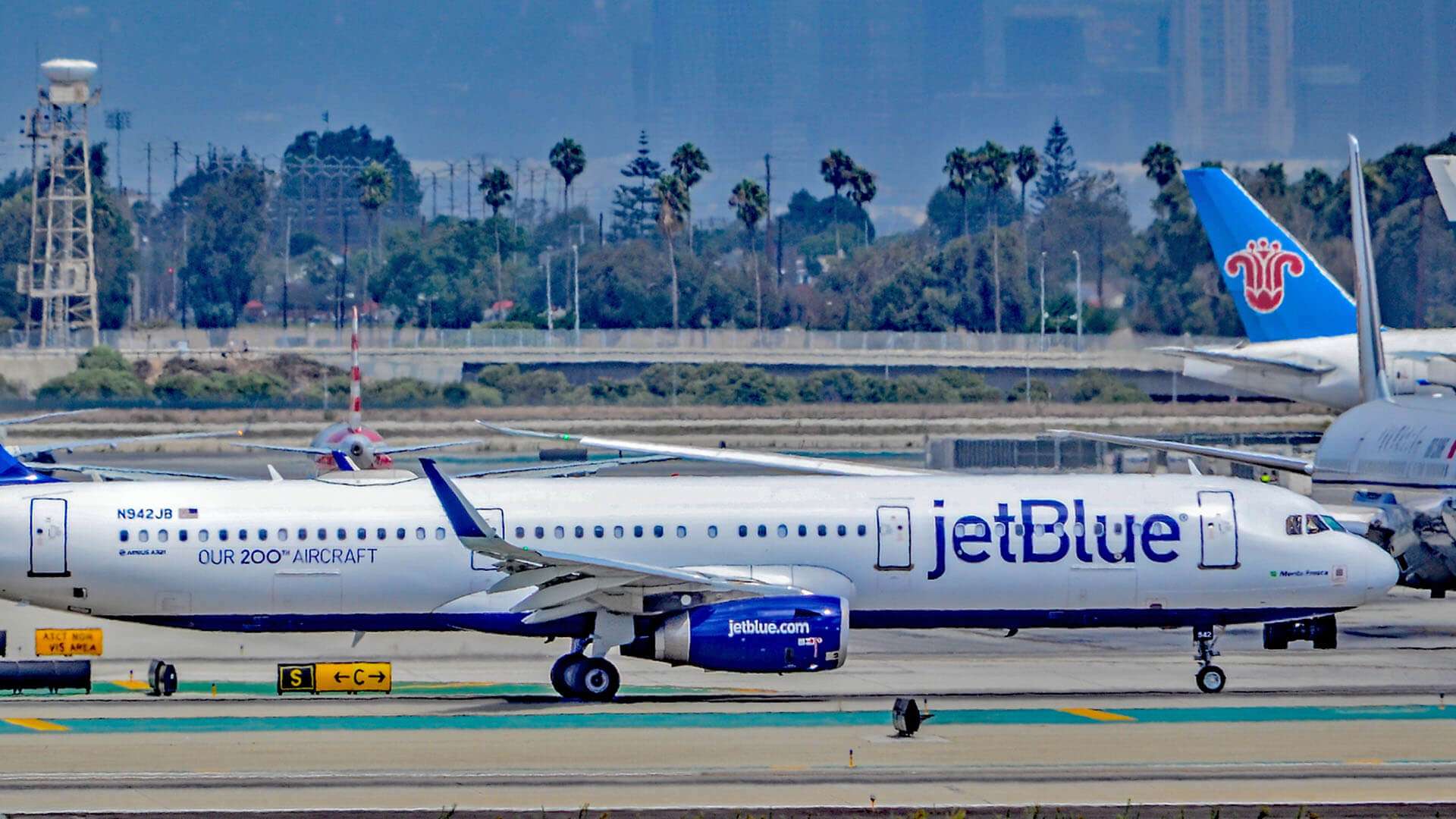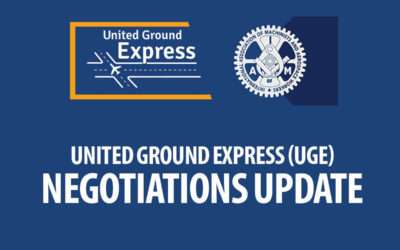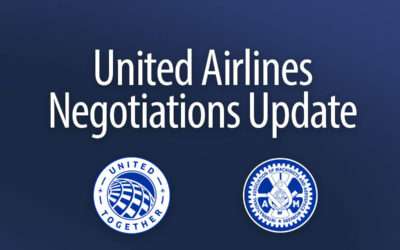
JetBlue is a company that has been mismanaged for years. Now, that poor management has invited numerous court actions and unwanted ire from the Justice Department.
JetBlue Merger Hits More Turbulance
Organizing
7 November 2022
JetBlue is facing mounting scrutiny over its planned merger with Spirit. A group of airline workers and consumers are filing a court challenge to try and slow the “almost unstoppable” march towards airline megalopoly.
The action comes as JetBlue posts the worst 3rd Quarter profits of any major carrier, earning a dismal $.21 a share, prompting investor concerns that airline management may be underperforming at a critical moment for the carrier. It’s also happening at a time when the airline is facing mounting concerns from the Justice Department over it’s de-facto merger with American in the Northeast markets.CEO Robin Hayes is expected to appear in court to defend the airline’s actions in that case. The airline is also facing questions from unions, who are asking if the company is being irresponsible financially, overpaying investors with what is being called “hush money” in case the deal with Spirit falls through. Unions are also calling for the airline to raise wages and offer better work / life balance for employees.
Flight Crews and consumers filed an injunction asking a Federal Judge to stop the planned $3.8 Billion merger between JetBlue Airways and Spirit Airlines in hopes of preserving one of the few remaining discount carriers in the U.S.
The group filed to stop the deal on Thursday, asking the U.S. District Court for the Northern District of California to block the transaction. The group argues that the new, larger airline could dominate key markets, leaving consumers no choice but to pay ticket prices that are impossible for either airline to command today.
If the merger goes through, the complaint argues, consumers “would not only lose the competition of Spirit, but also the potential competition that JetBlue would provide by building its own national presence the old-fashioned way, by competing for passengers instead of buying them.”
JetBlue is the sixth-largest airline operating in the U.S. Spirit is the seventh. The combined airline would immediately become the fifth-largest air carrier, right behind American, Delta, Southwest, and United.
The complaint argues that Spirit is a significant price-cutting rival of JetBlue and other major carriers and that, if the airline were eliminated from the commercial aviation ecosystem, other airlines would be free to hike fares on consumers. Moreover, the “current trend toward concentration, the lessening of competition, and the tendency to create a monopoly in the airline industry are unmatched and unparalleled,” the suit read.
It goes on to suggest that monopolistic power was the primary goal of the merger. “JetBlue would gain a majority market share on more than a dozen routes where neither it nor Spirit previously dominated, and it would eliminate the price-cutting by Spirit. Therefore, JetBlue made an unsolicited tender offer to purchase Spirit in order to eliminate that competition,” according to the filing.
The complaint states that Spirit is unique in commercial aviation because it’s small enough to survive on smaller ticket prices but large enough to compete against mega-carriers such as United and Southwest.
“Spirit, with its innovative, low-cost service, is an important bulwark against this almost unstoppable trend toward complete concentration and monopoly in the airline industry,” the suit says.
The proposed merger wouldn’t just eliminate another discount option for travelers; it would also remove an essential reason for the four mega-carriers to avoid “abuses” directed toward the flying public. If the Big Four airlines are no longer afraid of losing passengers to Spirit, the result may be skies that are even less friendly than they already are. If the JetBlue / Spirit deal is ultimately allowed to go forward, discount airfares in the U.S. will shrink by 50% overnight.
Earlier in 2022, the Spirit Board and executives concluded that a merger between Spirit and JetBlue could never be approved by regulators and was, therefore, “illusory.” The Board then rejected an earlier offer by JetBlue. JetBlue offered to “sweeten the deal” by paying the shareholders $400 million if the proposed combination failed. Thus the shareholders could move forward with the JetBlue combination without any risks. The $400 million to shareholders was to quiet the shareholder’s knowledge of the potential illegality of the acquisitions and was little more than “hush money” according to the suit.
Union vs Non-Union Thanksgiving Pay
Working on Thanksgiving? How JetBlue GO Crewmembers Holiday Pay Compares to Other Unionized GO Workers Justice at JetBlue22 November 2022The airline industry, as we know, is a 24/7 operation, and working on a holiday is part of the job. However, how we are COMPENSATED...
JetBlue Lies Exposed in MCO
JetBlue's VP of Airport Experiences tried to convince Ground Ops Crewmembers to give the airline another year to fix things. JetBlue Lies Exposed in MCOOrganizing4 November 2022Vice President of Airports Experience, Dana Shapir, has been hitting the road since GO...
Airline Profits: Union Made
Record summer airline profits are proof that workers are assets that should be invested in, not liabilities that should be limited. Summer 2022 Airline Profits: Union MadeOrganizing31 October 2022Unions create a workplace where workers take their jobs seriously,...
A Halloween Story About Dues at JetBlue
Supervisors at JetBlue think Crewmembers should be scared of dues, but it's abusive supervisors who have the most to fear from a well-funded, unified workplace. A Halloween Story About Dues at JetBlueOrganizing31 October 2022Anti-Union managers at JetBlue seem to...
JetBlue Union Vote Update: No Back Dues
JetBlue Union Vote Update: No Back DuesOrganizing27 October 2022Dear GO Crewmembers: Sadly and unfortunately, it has come to our attention that JetBlue management and their agents are lying about the union dues issue once again. Let me be as clear as possible: There...
Tentative Deal at Southwest: Historic Pay, Overtime Protections
Machinists Union Customer Service Workers at Soutwest are considering a Tentative Agreement that would provide historic wages and overtime protections. Tentative Deal at Southwest: Historic Pay, Overtime ProtectionsOrganizing26 October 2022Southwest Airlines has...
New Job Growth “Strong as Hell” After Investments, Says Secretary Of Transportation
New Job Growth "Strong as Hell" After Investments, Says Secretary Of TransportationLegislation19 October 2022In an appearance on CBS News' face the Nation over the weekend, Transportation Secretary Pete Buttigieg touted the Administration's economic and pro-union...
JetBlue Election Update – Your Questions, Answered
JetBlue Union Vote Update - Your Questions AnsweredOrganizing11 October 2022Now that we filed for an election, what happens next? The National Mediation Board (NMB), the federal agency that handles representation elections in the airline industry, has ordered JetBlue...
IAM / JetBlue Union Vote Update
JetBlue Union Vote UpdateOrganizing5 October 2022Union Vote Update: Timeline and Our Rights As you know, the IAM filed an application with the National Mediation Board (NMB), a federal agency, to conduct a union representation vote on Friday, September 23, 2022. On...
AFL-CIO: Thousands of JetBlue Ground Workers Organizing With Machinists
Photo Credit: Brian Vega, IAMAW District 141 Social and Visual Media Coordinator.AFL-CIO: Thousands of JetBlue Ground Workers Organizing With MachinistsAFL-CIO28 September 2022Working people across the United States have stepped up to help out our friends, neighbors,...
IAMAW District 141’s 69th Convention: Racking Up Four Years of Union Wins
The achievements celebrated at the event included union victories spanning the full spectrum of airport workplaces, including gate and ticket counters, ramp and ground personnel, janitors, security guards, and instructors. Photos: Brian Vega, IAMAW 141 Communications...
IAM Files for Union Representation Election for Approximately 3,000 JetBlue Ground Workers
IAM Files for Union Representation Election for Approximately 3,000 JetBlue Ground Workers23 September 2022WASHINGTON, Sept. 23, 2022 -- The International Association of Machinists and Aerospace Workers (IAM), North America’s largest airline union, today announced...
Related News
United Ground Express Negotiations Update
During these sessions, we focused on Section 4 (Hours of Service), where we exchanged and discussed proposals aimed at improving shift bidding processes and the annual frequency of company-initiated shift bids. We also addressed concerns regarding mandatory overtime...
United Negotiations Update for May 13, 2025
We are making steady progress on the Storekeeper contract proposals put forth by our membership. We held productive conversations on key areas such as increasing the use of 10-hour shifts—especially on midnight shifts—clarifying core work descriptions, and improving...
UGE Negotiations Update
We exchanged and discussed proposals regarding Section 4 (Hours of Service), with a focus on improving work schedules, meal periods, break times, and mandatory overtime—among other topics raised in your surveys and contract proposals.United Ground Express (UGE)...

JetBlue Merger Hits More Turbulence
7 November 2022
JetBlue is facing mounting scrutiny over its planned merger with Spirit. A group of airline workers and consumers are filing a court challenge to try and slow the “almost unstoppable” march towards airline megalopoly.
The action comes as JetBlue posts the worst 3rd Quarter profits of any major carrier, earning a dismal $.21 a share, prompting investor concerns that airline management may be underperforming at a critical moment for the carrier. It’s also happening at a time when the airline is facing mounting concerns from the Justice Department over its de-facto merger with American in the Northeast markets.CEO Robin Hayes is expected to appear in court to defend the airline’s actions in that case. The airline is also facing questions from unions, who are asking if the company is being irresponsible financially, overpaying investors with what is being called “hush money” in case the deal with Spirit falls through. Unions are also calling for the airline to raise wages and offer better work/life balance for employees.
Flight Crews and consumers filed an injunction asking a Federal Judge to stop the planned $3.8 Billion merger between JetBlue Airways and Spirit Airlines in hopes of preserving one of the few remaining discount carriers in the U.S.
The group filed to stop the deal on Thursday, asking the U.S. District Court for the Northern District of California to block the transaction. The group argues that the new, larger airline could dominate key markets, leaving consumers no choice but to pay ticket prices that are impossible for either airline to command today.
If the merger goes through, the complaint argues, consumers “would not only lose the competition of Spirit, but also the potential competition that JetBlue would provide by building its own national presence the old-fashioned way, by competing for passengers instead of buying them.”
JetBlue is the sixth-largest airline operating in the U.S. Spirit is the seventh. The combined airline would immediately become the fifth-largest air carrier, right behind American, Delta, Southwest, and United.
The complaint argues that Spirit is a significant price-cutting rival of JetBlue and other major carriers and that, if the airline were eliminated from the commercial aviation ecosystem, other airlines would be free to hike fares on consumers. Moreover, the “current trend toward concentration, the lessening of competition, and the tendency to create a monopoly in the airline industry are unmatched and unparalleled,” the suit read.
It goes on to suggest that monopolistic power was the primary goal of the merger. “JetBlue would gain a majority market share on more than a dozen routes where neither it nor Spirit previously dominated, and it would eliminate the price-cutting by Spirit. Therefore, JetBlue made an unsolicited tender offer to purchase Spirit in order to eliminate that competition,” according to the filing.
The complaint states that Spirit is unique in commercial aviation because it’s small enough to survive on smaller ticket prices but large enough to compete against mega-carriers such as United and Southwest.
“Spirit, with its innovative, low-cost service, is an important bulwark against this almost unstoppable trend toward complete concentration and monopoly in the airline industry,” the suit says.
The proposed merger wouldn’t just eliminate another discount option for travelers; it would also remove an essential reason for the four mega-carriers to avoid “abuses” directed toward the flying public. If the Big Four airlines are no longer afraid of losing passengers to Spirit, the result may be skies that are even less friendly than they already are. If the JetBlue / Spirit deal is ultimately allowed to go forward, discount airfares in the U.S. will shrink by 50% overnight.
The proposed merger wouldn’t just eliminate another discount option for travelers; it would also remove an essential reason for the four mega-carriers to avoid “abuses” directed toward the flying public. If the Big Four airlines are no longer afraid of losing passengers to Spirit, the result may be skies that are even less friendly than they already are. If the JetBlue / Spirit deal is ultimately allowed to go forward, discount airfares in the U.S. will shrink by 50% overnight.
Earlier in 2022, the Spirit Board and executives concluded that a merger between Spirit and JetBlue could never be approved by regulators and was, therefore, “illusory.” The Board then rejected an earlier offer by JetBlue. JetBlue offered to “sweeten the deal” by paying the shareholders $400 million if the proposed combination failed. Thus the shareholders could move forward with the JetBlue combination without any risks. The $400 million to shareholders was to quiet the shareholder’s knowledge of the potential illegality of the acquisitions and was little more than “hush money” according to the suit.
Related News
United Ground Express Negotiations Update
During these sessions, we focused on Section 4 (Hours of Service), where we exchanged and discussed proposals aimed at improving shift bidding processes and the annual frequency of company-initiated shift bids. We also addressed concerns regarding mandatory overtime...
United Negotiations Update for May 13, 2025
We are making steady progress on the Storekeeper contract proposals put forth by our membership. We held productive conversations on key areas such as increasing the use of 10-hour shifts—especially on midnight shifts—clarifying core work descriptions, and improving...
UGE Negotiations Update
We exchanged and discussed proposals regarding Section 4 (Hours of Service), with a focus on improving work schedules, meal periods, break times, and mandatory overtime—among other topics raised in your surveys and contract proposals.United Ground Express (UGE)...







